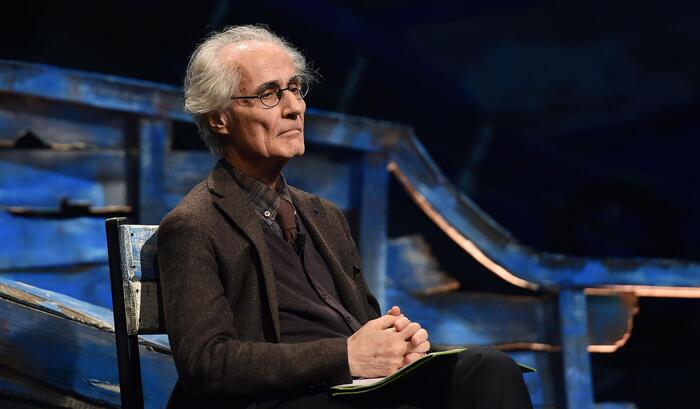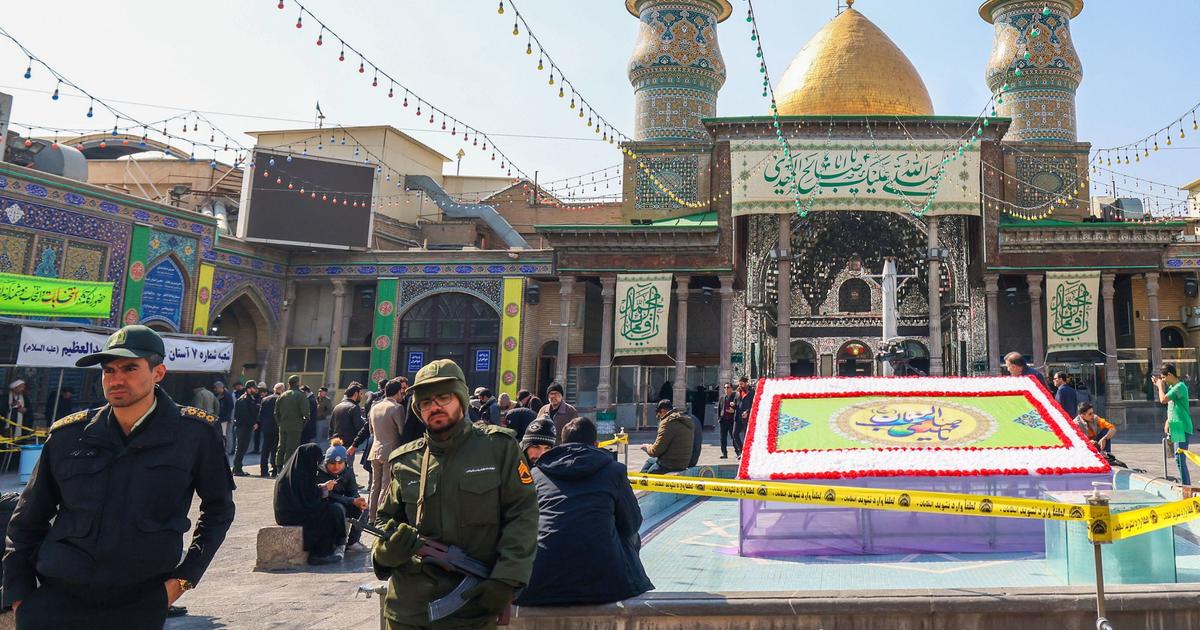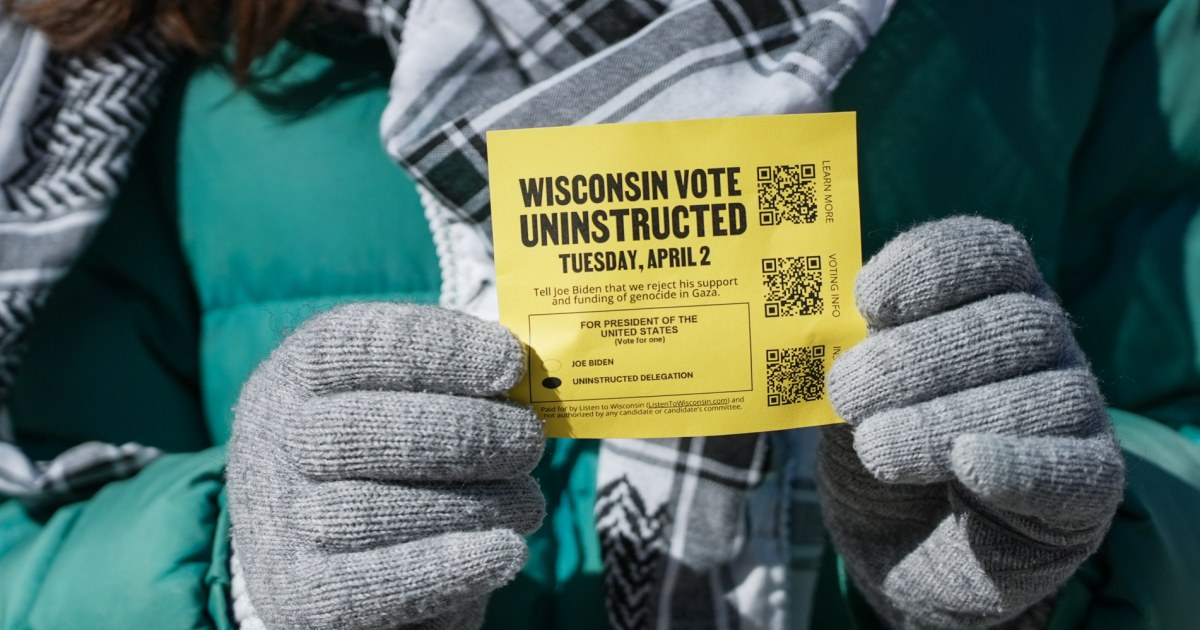Young people protest against the Government of Iván Duque, on May 6, 2021, in Bogotá. JUAN BARRETO (AFP)
Andrés Vargas and Diana Galindo are sitting on the back of a cement bench in the place where they met other young people in the midst of the protests that have shaken Colombia since 2019. It is the Thursday before the elections and the conversation revolves around what could happen on Sunday.
“I think that this time we are going to do it,” says Vargas, 27, a student of Social Sciences at the National Pedagogical University and a waiter.
It's his day off, so he takes advantage of the fact that it's not raining to spend the afternoon in the Parque de los Hippies, a place that has served as a meeting point for dozens of young people who have taken to the streets to demand change.
"We're tired," he says, as he holds up an empty beer can.
Next to her is Galindo, red-haired, 24 years old, who -at the moment- does not study or work.
Both were part of the marches against the Government of Iván Duque, which from the first year of its mandate found opposition among younger citizens, and both hope that on May 29 something will begin to change, but they mistrust institutions and fear they will take away the possibility of a different future.
“I feel the rarefied environment, with that software mess, with the doubts around the registrar and with a campaign that has been all against a single candidate.
I know that there are many of us who want this to finally change, but there are others, who although they are fewer, have more power”, says Vargas.
85% of Colombians have little or no trust in electoral institutions.
The left and the young have a majority in that percentage.
Vargas and Galindo are two of them, but they continue to believe that voting matters.
“We have to do the full exercise.
It is of little use to take to the streets, expose ourselves to police repression and even judicial persecution, if in the end we do not vote.
Surely what is coming will not be a paradise of milk and honey, but we can make something better, "says Galindo.
Nearly nine million people between the ages of 18 and 28 are eligible to vote in the presidential elections this Sunday.
Never in the history of Colombia —confirms the Registrar's Office— have so many young people had the option of choosing through voting.
It is an opportunity that the two young men sitting in the park say they are not going to miss.
"If it's not now, it's never," says Andrés, who tells an anecdote that he managed to convince his grandmother, "an uribista of always", to vote for Gustavo Petro, the option that, he says, best understands those of your age.
"In my house we only talk about politics and now we have the word," he says.
The country comes to these elections with several peculiarities, but the one in which young people come into play is the social outbreak, which began in 2019 as a reaction to the announcement of the tax reform by the Government of Iván de Duque and lasted until the year passed for many other reasons that were added along the way.
It was mainly younger people who were the protagonists of the protests, who saw people their own age die and get injured and who had to defend themselves against legal proceedings after having actively participated in the marches.
Tables and boxes are installed in a voting center in Bogotá. SANTIAGO ARCOS (REUTERS)
A study by the National Consulting Center (CNC) indicated at the beginning of the outbreak that 70% of people between 18 and 25 years of age had a positive image of the national strike, a support that gradually decreased to 60% among people between 26 and 40 , and 53% in the range of 41 to 55 years.
These figures have been almost a mirror of the support received by the candidates who are vying for the presidency.
A recent survey by the firm Invamer showed that more than 53% of voters between the ages of 18 and 24 and around 45% of those between 25 and 34 would vote for Gustavo Petro.
The 62-year-old left-wing candidate became during the protests one of the biggest supporters of the demands of the young people who showed their indignation in the streets.
Federico Gutiérrez, 47, the youngest of the candidates,
failed to gain acceptance among this sector of the population.
His voters are, according to the latest polls, mostly older than 50. That is why a Petro victory would not be possible without the support of younger Colombians.
The weariness that manifested itself, as few times in the recent history of the country, in the social protests, sought attention, but also a possibility that these elections would reflect the change they seek.
According to the same CNC survey, 80% of those under 40 believed that the demonstrations meant hope and a window for the Government to attend to the just demands of a society, but the Executive of Duque did not know —or could not— and the indignation grew, so much so that it ended up harming candidacies like Gutiérrez's.
The former mayor of Medellin has paid with the rejection of young people, the unpopular management of Duque because he is seen - even if he has denied it to the point of exhaustion - as the candidate of continuity.
The current government has had negative effects on the image of the party with which he became president,
the Democratic Center, on the leader of that movement Álvaro Uribe, and above all, on the possibilities of Federico Gutiérrez to conquer the younger electorate.
Not surprising when you look at the numbers.
In May of last year, according to the firm Figures and Concepts, 74% of citizens between 18 and 25 years old had an unfavorable image of the president.
Duque, the youngest president in the recent history of Colombia —he came to power at 42— has paradoxically been the ruler who experienced the strongest protests against the Executive and today has young people looking towards a totally opposite option —and very away—to what his management has represented.
With their collective action, the young people "achieved a titanic task in a country where cynicism and skepticism are the norm: they managed to inspire us," wrote political scientist and internationalist Sandra Borda in Stopping to Advance, her book on the student movement.
“They managed to convince us that we should not and should not resign ourselves to living in the country that a powerful minority wants for us;
that if we get together and act collectively we can create one in the image and likeness of what we want”,
Laura Gómez, 26, a Sociology student at the Javeriana University, says that the figure of Francia Márquez has been essential to generate emotion, conviction, but especially to have a clear decision to go to the polls this Sunday.
"She pulls the young vote because she has a new speech, because she is talking to us about things that no other politician had done and that has even served to give Gustavo Petro's candidacy a boost, we had already heard him four years ago years and his image could be seen for many somewhat worn.
France has given her a new air, she is the spark that the left lacks, ”says Gómez, who has taken to the streets to protest and has accompanied the aspirations of Francia Márquez since her attempt to be the presidential candidate. .
“With her we have also contradicted those who say that we only do not care about politics.
We were, above all, the young people who were by his side looking for signatures for his candidacy, who moved the organizations around him.
The same ones who protest against the old ways of doing politics, managed to get the second vote in the consultations last March.
That step on the gas is thanks to a wave of young voters.”
Gómez says that Francia Márquez has not only managed to mobilize the younger ones, but also women, minorities.
“Youth, women, black, feminists.
France excites us because it is the first time that we see a woman who has understood feminism and who has options to come to power and from there, we believe, that she will guarantee an agenda of equality, that ends gender and race gaps " .
Colombians are tired of inequality, but young people seem more aware of the need for change.
Érika Prieto is 30 years old and has been part of the student movement since 2009. Since then she has been waiting for a moment like the one Colombia is experiencing today.
“There is a society that has always been tired of war, and that with events such as the murder at the hands of the police of Dilan Cruz —a 21-year-old young man who died after being shot by the riot police— or the bombing of a camp where there were minors (in October 2021), he understood the meaning of the protest.
We had more reasons than we thought to demonstrate and reject the Government of Iván Duque”, she says.
She now has the expectation that with the elections this Sunday that for which they demand so much will begin to take shape.
A young man votes during the legislative elections in Colombia, last March. Gladys Serrano
“The vote is worth nothing, it is what we have always been told, but we have that it is increasingly clear that we must use the vote to show a position on the country we want and to show that we are dissatisfied with the country in which we live. we live," he says.
Prieto was one of the many leaders of the protests who was prosecuted, under the crime of aggravated rebellion, she was about to go to jail, but justice did not find enough evidence and, although the process is still open, she is free and today, one day before the elections, he is part of the electoral legal commission, which on Sunday will verify the counting of votes.
“There is distrust and a very strong fatigue.
We have tried many times for them to listen to us, despite the murders, disappearances and displacements, we believe that it is possible that there will be a different government in which the doors are opened for democratic participation”, says Prieto, who enthusiastically highlights what he has seen in this presidential campaign.
“Everywhere, in all the movements, there are no longer the usual people, the same ones from the traditional parties, but rather young people who seek respect for the possibility of the people governing,” he points out.
“The bet is that we manage to transform the institutions through the votes.
All the institutions are part of the government party and this makes us have very serious doubts about what the process could be, but we are also there for that, to ensure that our votes are respected”, he concludes.
Young people this time take very seriously the statement that the future of Colombia is theirs.
Subscribe here to the EL PAÍS newsletter on Colombia and receive all the key information on the country's current affairs.

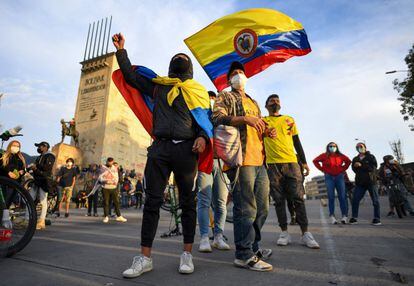
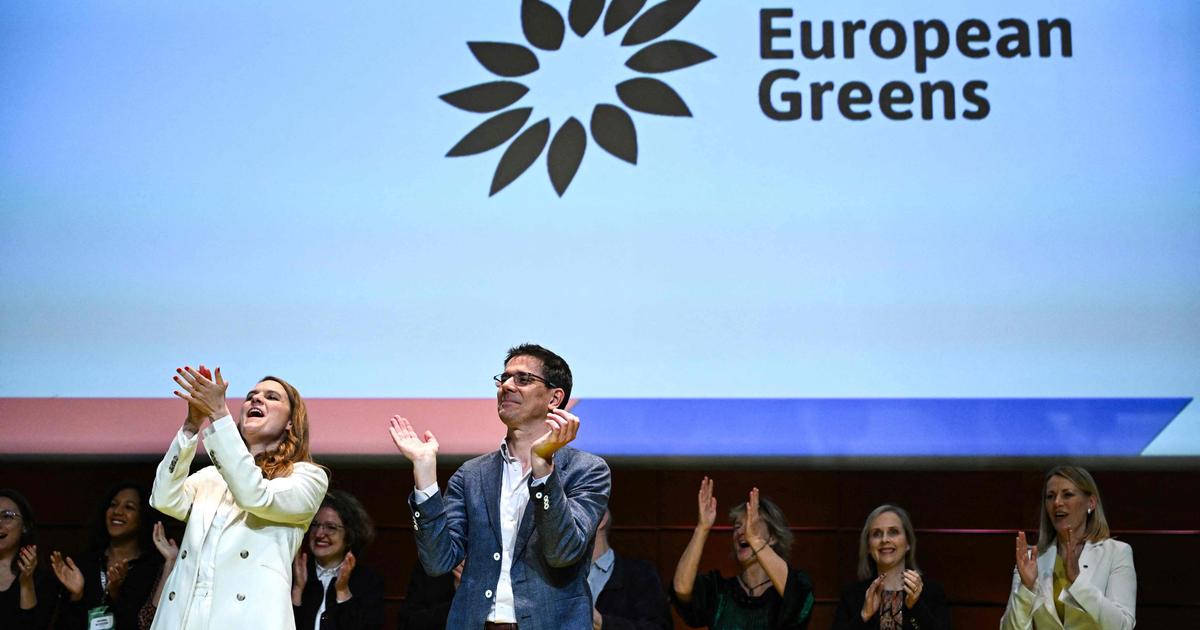
/cloudfront-eu-central-1.images.arcpublishing.com/prisa/5HSMPSMQT5HPRLKEALA2ONKDQM.jpg)

